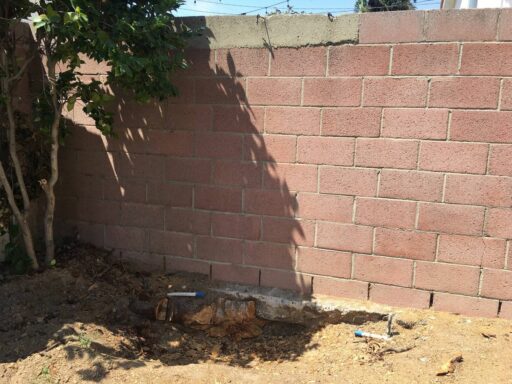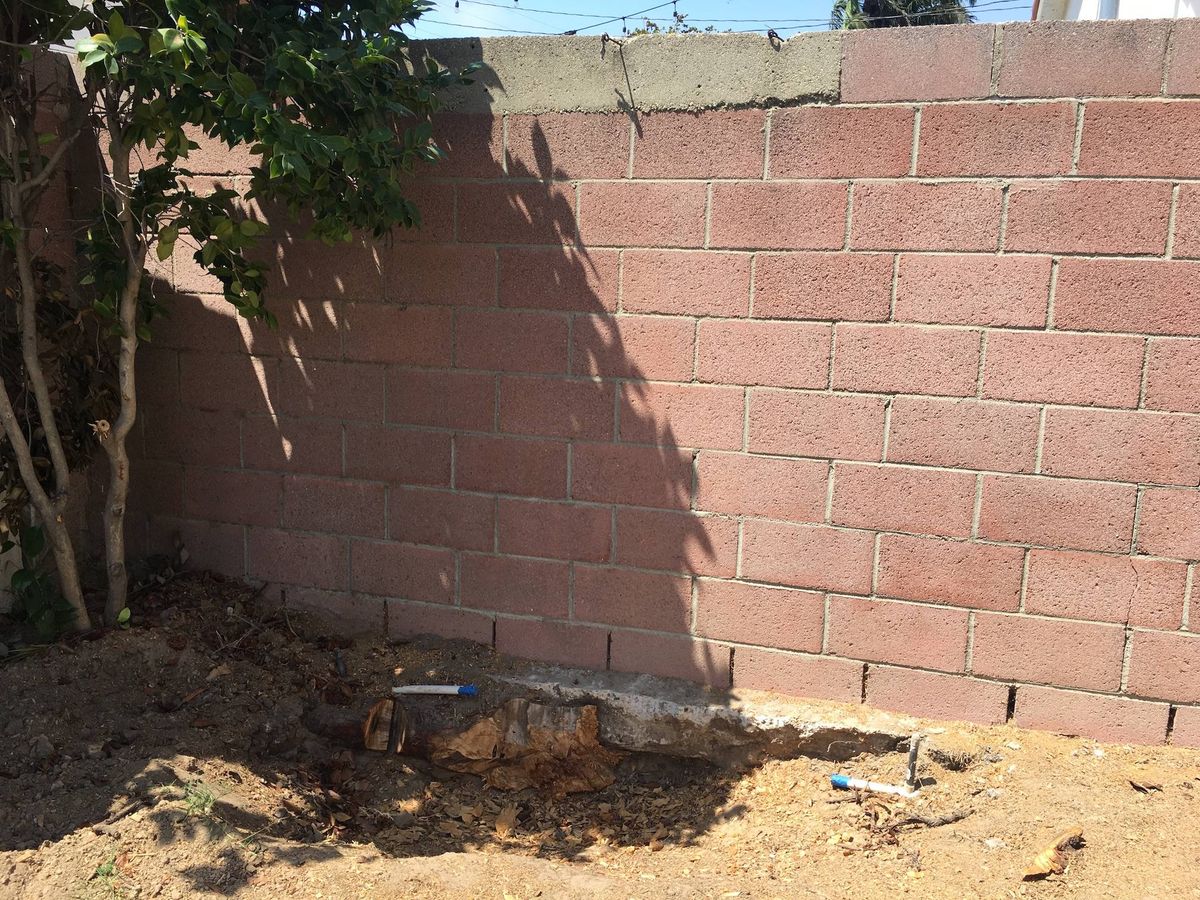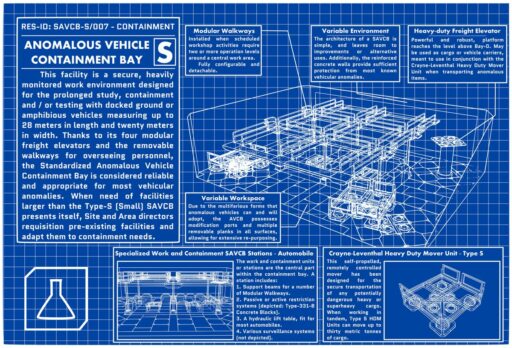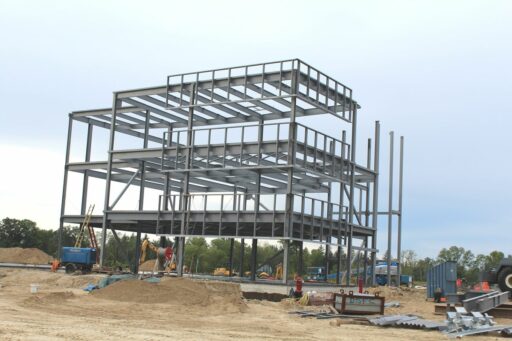Concrete block repair is a critical aspect of maintaining the structural integrity and aesthetic appeal of buildings. Whether it’s a small crack or significant damage, choosing the right repair contractor is essential for a durable and cost-effective solution. This article provides valuable insights into identifying the scope of concrete repair projects, selecting qualified contractors, evaluating repair methods and materials, understanding financial considerations, and ensuring a successful repair through best practices.
Key Takeaways
- Assess the extent of concrete damage before deciding between DIY repairs and professional help, considering the potential pitfalls of DIY approaches.
- Look for contractors with the necessary qualifications, certifications, and positive reviews from past projects to ensure a high-quality repair job.
- Evaluate different concrete repair techniques and materials, weighing the benefits of traditional methods against innovative solutions for long-term durability.
- Understand the cost involved in concrete block repairs, including obtaining clear quotes and being aware of potential hidden charges to budget effectively.
- Supervise the repair process for quality assurance, and ensure post-repair inspections, maintenance, and a solid warranty or guarantee from the contractor.
Understanding the Scope of Your Concrete Repair Project

Assessing the Damage: When to Call a Professional
Before deciding on the next steps for repairing concrete blocks, it’s crucial to conduct a thorough initial assessment of the damage. This evaluation will help determine the extent and nature of the damage, which is vital for planning the repair process. A professional’s expertise is often required to assess the structural integrity of the foundation and to recommend the most effective repair solutions.
When encountering certain warning signs, it’s imperative to seek professional advice. Here are some indicators that you should call a professional:
- Sudden appearance of large cracks
- Cracks running vertically or horizontally along a wall
- Stair-step cracking in exterior brick walls or interior concrete block walls
- Damage that seems to be caused by soil pressure
Remember, while some minor issues can be addressed with DIY methods, significant or sudden damage often necessitates the involvement of a structural engineer or experienced contractor.
Understanding when to engage a professional is not only about safety but also about ensuring the longevity and stability of your home. If you’re unsure about the severity of the damage, it’s always safer to consult with a specialist.
DIY vs. Professional Repair: Making the Right Choice
When it comes to concrete block repair, the decision between DIY and professional intervention hinges on the severity and complexity of the damage. Minor cracks and superficial damage often lend themselves to DIY solutions, provided that you have the right tools and follow safety guidelines. However, for significant or severe cracking, professional repair is not just recommended, it’s essential to ensure the safety and longevity of the structure.
It is important to note that while many minor cracks can be easily managed with DIY methods, significant or severe cracking may require professional assistance. If unsure about the severity of the crack, seeking expert advice is recommended.
For those considering the DIY route, here are some key points to keep in mind:
- Always read and follow the manufacturer’s instructions carefully when using DIY repair products.
- Ensure you have the necessary safety equipment and understand the risks involved.
- Be realistic about your skill level and the time commitment required for a proper repair.
Choosing to hire a professional comes with the benefit of expertise and experience. Here’s what to consider:
- Professionals have the qualifications and certifications to handle complex repairs.
- They can provide a warranty for their work, offering peace of mind.
- A professional contractor can often identify and address underlying issues that may not be apparent to the untrained eye.
Types of Concrete Damage and Appropriate Repair Methods
Concrete damage can manifest in various forms, each requiring a specific approach for effective repair. Understanding the type of damage is crucial in selecting the right repair method. Here are some common types of concrete damage and their corresponding repair techniques:
- Cracks: Small cracks can often be repaired with sealant or epoxy injections, which provide a flexible and waterproof solution. For larger cracks, hydraulic cement is recommended due to its rapid setting properties.
- Surface Spalling: This occurs when the concrete surface peels, chips, or flakes off. Repair typically involves removing the damaged concrete, treating any exposed steel reinforcement, and applying a new surface layer.
- Structural Damage: More severe damage, such as compromised load-bearing elements, requires a thorough assessment by a structural engineer and may involve complex repairs or even replacement.
It’s important to address concrete damage promptly to prevent further deterioration. Regular maintenance and early intervention can save significant time and expense in the long run.
When considering repair options, it’s also essential to factor in the longevity and performance of the repair materials. High-quality materials may offer better durability and resistance to future damage, potentially reducing the need for frequent repairs.
Selecting a Qualified Concrete Repair Contractor

Essential Qualifications and Certifications to Look For
When selecting a qualified concrete repair contractor, it’s crucial to verify their qualifications and certifications. Ensure they have the necessary licenses and insurance to perform the work legally and safely. A contractor’s credentials can be a testament to their knowledge and adherence to industry standards.
- Look for certifications from recognized industry organizations.
- Check for a history of completed projects similar to yours.
- Verify that they have comprehensive liability insurance and worker’s compensation.
It’s also important to consider the contractor’s commitment to quality assurance and inspection. This commitment is a key factor in the longevity and safety of the repair.
A thorough professional evaluation and advisory at the beginning of the project can set the stage for a successful repair process.
Lastly, don’t forget to review the contractor’s past project reviews and ratings. These can provide valuable insights into their workmanship and customer service.
The Importance of Experience and Past Project Reviews
When it comes to concrete block repair, the experience of the contractor is just as critical as their technical skills. A contractor’s history of past projects serves as a testament to their capability and reliability in the field. It’s essential to review their portfolio and ask for client testimonials, which can provide insights into their workmanship and customer service.
- Review the contractor’s portfolio of completed projects.
- Request and evaluate client testimonials.
- Check for a consistent track record of quality and timeliness.
Experience isn’t just about the number of years in the business; it’s about the relevance and success of past projects. A contractor with a diverse background in concrete repair will likely have encountered and overcome a variety of challenges, equipping them with the knowledge to handle your specific repair needs effectively.
It’s crucial to ensure that the contractor you choose has a solid foundation of experience and positive feedback from previous clients. This due diligence will pay off in the quality and durability of the repair work.
Questions to Ask Potential Contractors Before Hiring
Before finalizing a contractor for your concrete block repair, it’s crucial to conduct a thorough interview. Ask about their experience with projects similar to yours to gauge their expertise. Inquire about the team’s composition and who will be on-site supervising the work. It’s also important to understand their approach to unforeseen issues; ask how they handle changes in scope or unexpected challenges.
- How long have you been in business?
- Can you provide references from past clients?
- What is your projected timeline for my project?
- How do you ensure the quality and longevity of repairs?
- What warranties or guarantees do you offer?
Transparency in communication is key. Ensure that the contractor is willing to keep you informed throughout the process and is open to your questions and concerns.
Evaluating Repair Methods and Materials

Comparing Different Concrete Repair Techniques
When it comes to concrete repair, the techniques employed can vary significantly based on the type of damage and the desired outcome. It’s crucial to compare the different methods available to ensure the most effective repair. For instance, crack repair might involve simple sealing for minor issues, while more extensive damage could require demolition and removal before restoration.
- Epoxy Injection: Ideal for repairing cracks, this method is both cost-effective and durable.
- Stitching: Useful for more significant cracks or where additional strength is needed.
- Carbon Fiber Reinforcement: Offers versatility and adaptability, with a focus on long-term durability.
- Demolition and Replacement: Necessary when the damage is too extensive for repair.
It is essential to select a repair method that not only addresses the current damage but also prevents future issues. This often involves considering the balance between upfront costs and long-term benefits.
Always ensure that the contractors you choose are licensed and insured, as this guarantees a level of safety and quality in the work performed. The range of services offered by contractors can include everything from simple crack repair to full-scale demolition and removal, depending on the severity of the damage.
Material Selection: Quality and Durability Considerations
Selecting the right materials for concrete block repair is crucial for ensuring the longevity and durability of the structure. The quality of the repair material directly influences the repair’s success and lifespan. When choosing materials, consider their compatibility with the existing concrete, their ability to adhere to different surfaces, and their resistance to environmental factors.
- Compatibility with existing concrete and masonry
- Adhesion to surfaces including steel rebar and brick
- Resistance to weather conditions and environmental stress
It’s essential to select a concrete patch that not only matches the physical properties of the original material but also offers enhanced durability for future protection.
Understanding the specific needs of your repair project will guide you in selecting a product that provides the best performance. For instance, the best concrete patch for small cracks should be able to bond effectively to the existing material and withstand the demands of the location, whether it’s a high-traffic area or exposed to severe weather.
Innovative Solutions: When to Opt for Advanced Repair Options
When facing complex or severe concrete damage, advanced repair options such as carbon fiber reinforcement can offer superior results. These innovative solutions are not only effective but also cost-efficient in the long run. Customized repair solutions are tailored to meet the unique challenges of each foundation, ensuring maximum effectiveness.
- Customized Repair Solutions: Tailored to address specific issues, enhancing the repair’s effectiveness.
- Superior Materials and Equipment: Utilizing high-quality carbon fiber and state-of-the-art equipment for unparalleled results.
- Cost-Effectiveness: Potential savings from lower material and labor costs, reduced downtime, and long-term durability.
Advanced repair techniques, while initially more costly, can provide significant long-term benefits, including increased structural integrity and reduced maintenance needs.
It’s crucial to source carbon fiber materials from reputable manufacturers to ensure consistency and reliability. A rigorous quality assurance and inspection process further guarantees the repair’s success.
Financial Considerations and Budgeting for Concrete Repair

Estimating the Cost of Concrete Block Repairs
When planning for concrete block repairs, it’s crucial to set a realistic budget that reflects the scope and complexity of the project. Costs can vary widely based on the extent of damage, the repair methods chosen, and the materials used. To get a clearer picture of potential expenses, consider the following factors:
- Extent of Damage: Minor cracks may only require simple patching, while extensive damage could necessitate a complete overhaul.
- Repair Method: Options range from resurfacing to full replacement, each with different cost implications.
- Material Quality: High-quality, durable materials may cost more upfront but can lead to long-term savings.
It’s essential to understand the timeline of the project and check contractor qualifications to ensure that the repair is both efficient and effective.
Remember to read reviews and seek recommendations to find a reputable contractor. Planning according to your needs and preferences, while keeping in mind the guide for masonry projects, will help you avoid unexpected costs and ensure a successful repair.
Understanding Quotes and Avoiding Hidden Charges
When obtaining quotes for concrete block repairs, it’s crucial to ensure that the pricing is transparent and comprehensive. Always request a detailed breakdown of costs to avoid surprises later on. This breakdown should include labor, materials, and any additional fees that may apply. Here’s a simple checklist to help you analyze quotes effectively:
- Confirm that the quote includes all aspects of the repair work.
- Check for any clauses that may indicate potential extra charges.
- Inquire about the costs of any necessary permits or inspections.
- Ask for clarification on any line items you do not understand.
Remember, a lower initial quote does not always equate to a lower final cost. Be wary of quotes that seem significantly lower than others, as they may not cover all necessary work or could contain hidden fees.
Understanding the full scope of the financial commitment is essential. If you encounter terms like ‘estimated costs’ or ‘subject to change,’ seek a fixed-price agreement to lock in the costs. This can help prevent the escalating costs associated with delayed maintenance or unforeseen issues during the repair process.
Negotiating Terms and Payment Schedules with Contractors
When it comes to concrete block repairs, understanding and negotiating the terms and payment schedules with your contractor is crucial. Ensure that the payment plan aligns with the project milestones to maintain a fair and transparent financial relationship. A staggered payment schedule often works best, allowing you to make payments at different stages of the project.
For example, you might agree to a payment structure like this:
- Deposit: 10% upfront
- Post-demolition: 20% once the damaged area is cleared
- Mid-project: 30% after half of the work is completed
- Pre-final inspection: 20% when the work is nearly finished
- Completion: 20% upon satisfactory completion of the job
It’s important to communicate clearly with your contractor about your expectations and the payment terms. Explain that you fully intend to pay up as soon as the job is completed. If issues arise, strive to work out an acceptable resolution.
Remember to document all agreements in writing to avoid any misunderstandings later on. This documentation should include the payment schedule, scope of work, and any warranties or guarantees.
Ensuring a Successful Repair: Best Practices and Follow-Up

Supervising the Repair Process for Quality Assurance
Ensuring the quality and compliance of concrete block repairs is critical. Supervision during the repair process is not just about overseeing the work but also about verifying that the repair meets industry standards and specifications. It is advisable to involve professional engineers or inspectors who can provide an independent assessment of the repair’s integrity.
It is essential to maintain a vigilant eye on the repair process, ensuring that every step aligns with the agreed-upon standards and methods.
To effectively supervise the repair process, consider the following steps:
- Conduct regular on-site inspections to monitor progress and adherence to specifications.
- Review the materials used and confirm their quality and suitability for the repair.
- Communicate regularly with the contractor to stay informed about any challenges or changes.
- Document all findings and discussions for future reference and accountability.
Post-Repair Inspections and Maintenance Tips
After the completion of concrete block repairs, it’s crucial to establish a routine for post-repair inspections and maintenance to ensure the longevity of the work done. Regular inspections are key to identifying any potential issues early on, which can prevent minor problems from escalating into major concerns.
- Regular inspection: Routinely check the repaired areas for signs of wear or damage, such as cracks or crumbling. Early detection is vital for timely interventions.
- Gentle cleaning: To maintain the appearance and integrity of the repair, use a soft brush and suitable cleaners. Avoid high-pressure washers that can damage the concrete.
It is essential to understand that the responsibility for the upkeep of the repaired concrete does not end with the contractor. As a property owner, ongoing vigilance is necessary to protect your investment.
In addition to visual inspections, consider engaging professional engineers or inspectors periodically to verify the integrity and efficacy of the repair. This level of scrutiny ensures compliance with industry standards and provides peace of mind that the repair is performing as intended.
Warranty and Guarantee: What to Expect from Your Contractor
When finalizing a concrete block repair project, understanding the warranty and guarantee terms offered by your contractor is crucial. Ensure that the warranty period is clearly defined and covers both materials and workmanship. A standard warranty might last anywhere from one to five years, but this can vary depending on the contractor and the extent of the repairs.
It’s important to clarify what is included in the warranty. Some warranties may cover defects and failures, while others might include periodic inspections or even maintenance services.
Here are some key points to consider regarding warranties and guarantees:
- The scope of the warranty: what is covered and for how long.
- The process for filing a claim if issues arise after the repair.
- Any exclusions or limitations that may apply.
By understanding these aspects, you can ensure that you are adequately protected against future problems and that your investment in the repair work is secure.
Conclusion
Selecting the right concrete block repair contractor is crucial for ensuring the longevity and safety of your structure. Throughout this article, we’ve explored various tips and best practices to guide you in making an informed decision. From understanding the common pitfalls of DIY bricklaying to considering the expertise of seasoned professionals, the importance of choosing a skilled contractor cannot be overstated. Remember to assess the damage thoroughly, weigh the pros and cons of repair versus replacement, and seek out contractors with a solid track record and transparent communication. By following these guidelines, you can rest assured that your concrete repair project will be handled with the utmost care and professionalism.
Frequently Asked Questions
How do I assess the damage to my concrete blocks to determine if I need professional repair?
To assess the damage, look for signs such as significant cracking, structural deformation, or areas where the concrete has crumbled. If the damage is extensive or if the structural integrity of the concrete is compromised, it’s best to call a professional for an accurate assessment and repair.
Should I attempt DIY repair for my concrete blocks or hire a professional?
DIY repair can be suitable for minor damages such as small, non-structural cracks. However, for more significant or structural damage, hiring a professional is recommended to ensure the repairs are performed correctly and safely.
What qualifications should a concrete repair contractor have?
A qualified concrete repair contractor should have relevant certifications, a valid license, insurance, and a solid track record of successfully completed projects. It’s also important to check for any specialized training or accreditation they may have in concrete repair techniques.
How can I estimate the cost of concrete block repairs?
The cost of concrete block repairs can vary widely based on the extent of damage, the repair methods used, and the cost of materials. To get an accurate estimate, it’s best to obtain quotes from several contractors after they have assessed the damage.
What are the best practices to ensure a successful concrete block repair?
Best practices include thoroughly vetting potential contractors, selecting high-quality materials, supervising the repair process to ensure adherence to specifications, and conducting post-repair inspections to verify the quality of work.
What should I look for in a warranty or guarantee from a concrete repair contractor?
Look for a warranty or guarantee that covers the quality of workmanship and materials. It should clearly state the duration of the coverage, what is included, and the process for addressing any issues that may arise after the repair is completed.





